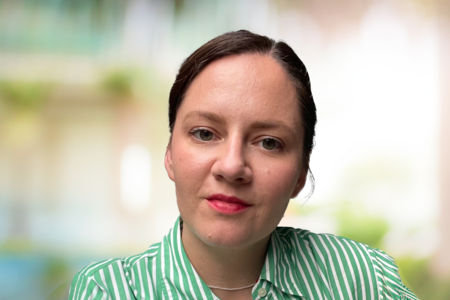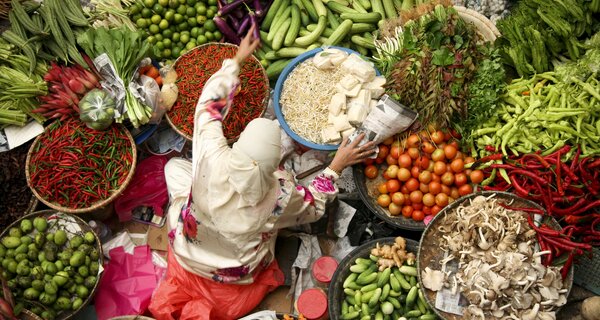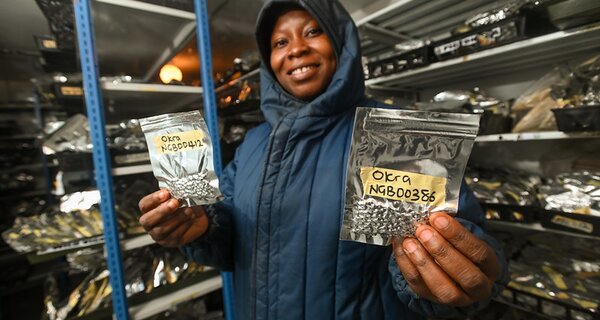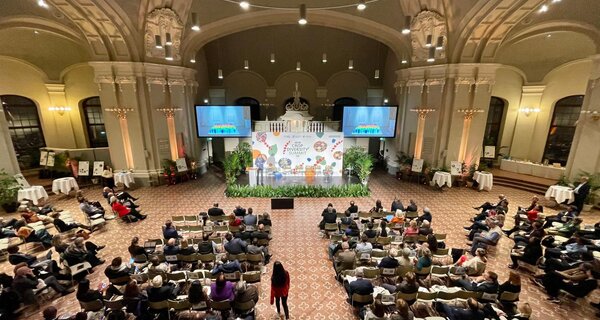My Potato is Your Potato: Collective Responsibility for Crop Diversity
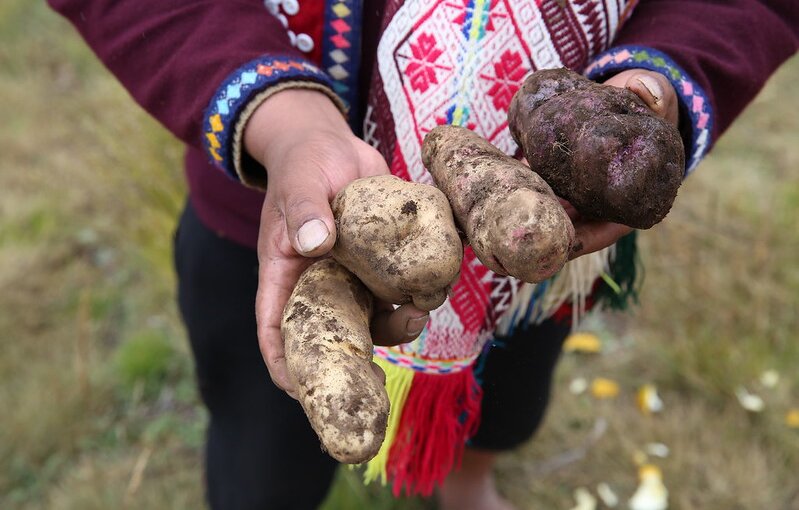
The Parque de la Papa (Potato Park). (Photo: Luis Salazar for Crop Trust)
29 January 2024
The rich tapestry of variation within and among crops worldwide is facing a rapid and concerning decline. Conserving crop diversity – be it in the form of seeds in the deep freeze, as plants in a farmer’s field or plantlets in test tubes in a lab – is the key to protecting our future food security.
And not just that, it ticks multiple development boxes. The conservation of crop diversity helps agriculture adapt to the climate crisis, reduces environmental degradation, improves livelihoods, and feeds everyone adequately. Plus, it gives flavor to our meals and is intrinsically linked to our cultures.
But it cannot thrive without global collaboration among people, institutions and indeed nations.
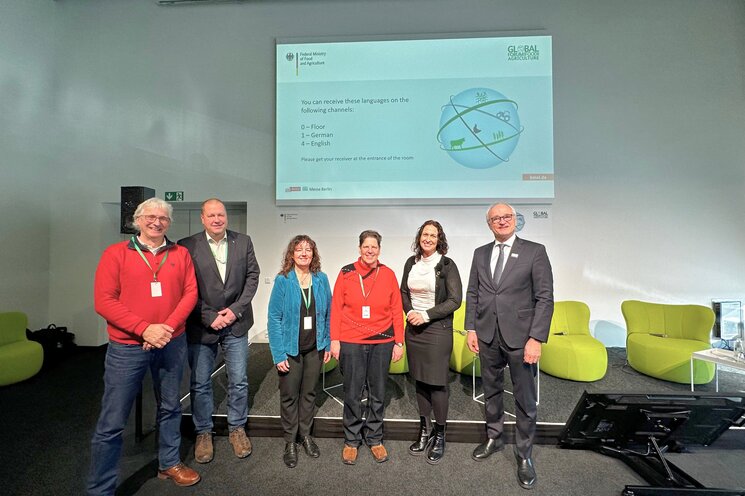
Expert panel co-hosted by the Crop Trust and Julius-Kühn Institute. (Photo: Crop Trust)

The Global Forum for Food and Agriculture (GFFA), January 2024. (Photo: Crop Trust)
Held annually during the Berlin Green Week, the Global Forum for Food and Agriculture (GFFA) was a perfect opportunity to foster just such collaboration. During the latest GFFA, on 19 January, the Julius Kühn-Institut, a German plant research institute, and the Crop Trust welcomed attendees to a panel event on Crop Diversity for a Healthy Planet and Those Who Live on It.
"This is the first follow-up of 2024 to the Global Crop Diversity Summit we hosted in Berlin last November, and an excellent opportunity to come together to exchange ideas on how to raise the level of political attention that crop diversity is getting," emphasized Stefan Schmitz, Executive Director of the Crop Trust, who moderated the event. Wenche Westberg, State Secretary of the Norwegian Government, echoed this sentiment, praising the inclusion of crop diversity on the agenda at GFFA 2024. She highlighted the importance of reminding everyone of the contribution of crop diversity to our livelihoods, emphasizing its role in providing diverse and flavorful diets.
Westberg described a poignant example of a crop deeply ingrained in both German and Norwegian cuisines. “In the Andean mountains there are thousands of different potato varieties, while in Norway and Germany many would claim that there is nothing more Norwegian or German than the potato. This shows how no country is self-reliant for crop diversity, we are all mutually dependent. Global collaboration, therefore, is crucial,” she said. The example underscores the interconnectedness of global food systems and the need for collaborative efforts to celebrate, preserve and use crop diversity.
The loss of crop diversity from both farmer's fields and natural habitats poses a significant challenge to adapting our food systems to evolving global challenges. Recognized as a global common good by the International Plant Treaty and highlighted in UN Sustainable Development Goals and the CBD Kunming-Montreal Global Biodiversity Framework, crop diversity requires international cooperation for its protection, preservation, and sustainable use. By safeguarding the diversity of crops and their wild relatives, useful genes remain available for breeders and researchers to use to help crops face new challenges, remarked Henryk Flachowsky, Head of the Institute for Breeding Research on Fruit Crops at the Julius Kühn-Institut.
On-farm management and the establishment of genebanks play complementary, pivotal roles in conserving crop diversity, essential for breeding resilient varieties less reliant on potentially harmful inputs like fertilizers and pesticides. "Empowering crop diversity conservation efforts requires a concerted effort by multiple actors in multiple dimensions," stated Schmitz. “We need both in situ and ex situ conservation. We need collaboration among farmers, conservationists, genebank experts, NGOs, and policymakers.”
Moreover, ongoing initiatives around the world should not be isolated, but rather are intricately connected to a larger context. Suchwork and conversations will guide preparations for the 2024 United Nations Biodiversity Conference (CBD COP16) to be held in Colombia in October 2024. The only way to successfully address the climate crisis, mitigate environmental degradation, enhance livelihoods, and ensure sufficient food for everyone, is to do it collectively.
View more photos from the event.
Categories: Climate Change, Food Security, Nutritional Security, Sustainable Agriculture

